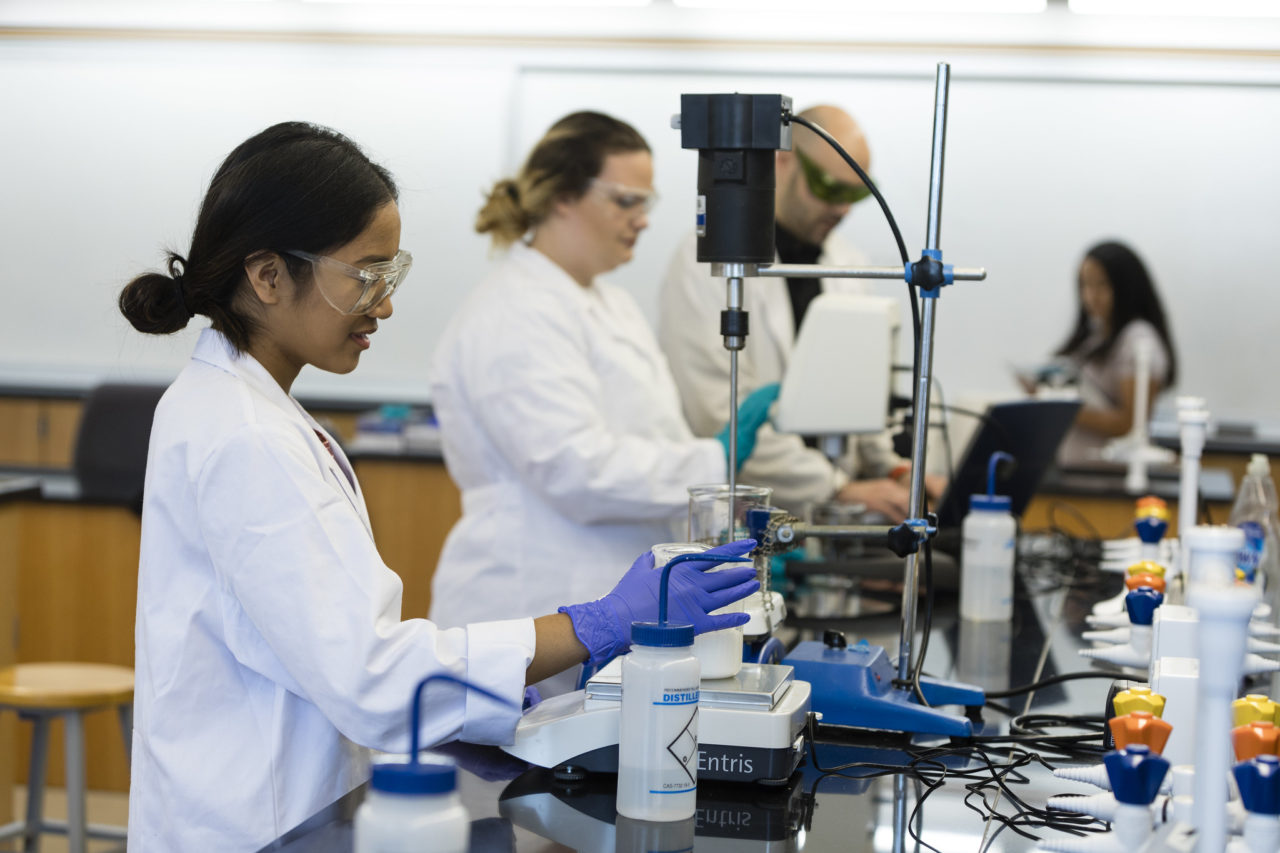Biology Minor

The Biology minor is for students NOT majoring in Biology, Marine Biology, or Science. The minor in Biology consists of five courses and a laboratory that will give students a broad foundation in the subject. Students interested in environmental areas should select the Ecology/ Genetics cluster while those interested in health-related areas should select the Anatomy and Physiology cluster.
Biology Minor (20 credits total)
Required Courses (12 credits)
- BIOL1221, BIOL1222, BIOL1223 Biological Diversity lecture, lab, recitation (4 credits)
- BIOL1233, BIOL1234, BIOL1235 Molecules, Cells and Genes lecture, lab recitation (4 credits)
- BIOL3050, BIOL3051 Molecular Cell Biology, lecture, lab (4 credits)
Elective Courses (Metro)
Take 1 cluster for (8 credits)
1) Take the Ecology and Genetics cluster
- BIOL2250, BIOL2251 Ecology and Field Biology, lecture, lab (4 credits) or MBIO2209, MBIO2219 Introduction to Marine Biology, lecture, lab (4 credits) and
- BIOL3100, BIOL3101 Genetics, lecture, lab (4 credits)
OR
2) Take the Anatomy and Physiology cluster (8 credits)
- BIOL2203, BIOL2223 Human Anatomy and Physiology I, lecture, lab (4 credits) and
- BIOL2204, BIOL2224 Human Anatomy and Physiology II, lecture, lab (4 credits)
Elective Courses (Florham)
Take 1 cluster for (8 credits)
1) Take the Ecology & Genetics cluster
- BIOL2250, BIOL2251 Ecology, and Field Biology, lecture, lab (4 credits)
- BIOL3100, BIOL3101 Genetics, lecture, lab (4 credits)
OR
2) Take the Anatomy & Physiology cluster (8 credits)